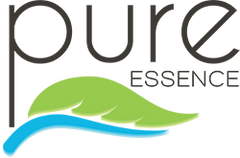If you’ve been dealing with the hormonal ups and downs of a menstrual cycle for a good portion of your life, you’re probably familiar with how much of an impact your hormones can have on you day after day. Likewise, if you’ve ever been pregnant, you’ll know those hormonal shifts that come with growing a baby are also pretty intense. But when you reach a certain age, you’re presented with yet another case of hormonal roller-coasters: menopause!
Menopause and its pre-cursor, perimenopause, bring about major changes to your sex hormones (estrogen and progesterone), and the resulting symptoms can be uncomfortable. The good news is that this life transition is a natural one, and there are also plenty of natural remedies for hormonal imbalance during menopause.
What is menopause, exactly?
At its core, perimenopause is a time in which your hormone levels begin to shift, signaling the eventual end of your regular menstrual cycle and your ability to conceive children naturally. Perimenopause generally lasts around ten years. Then, when you’ve gone a full year (12 months) without a menstrual cycle, you’ve officially reached menopause.

To dive a little deeper, it’s helpful to understand what’s actually going on with your hormones during this time. Since puberty, your estrogen and progesterone production has been operating on a regular monthly schedule, with levels adjusting throughout your cycle to get your body ready for a potential pregnancy. But as you approach a certain age (generally in the late-30s to mid-40s, for most women), the levels of both hormones decrease, eventually reaching low enough levels to stop your regular menstrual cycle and ability to become pregnant naturally. Another sex hormone, testosterone, also declines slowly during this time.
So as these three hormones adjust and deviate from their regular monthly schedule, you can experience those telltale symptoms of perimenopausal “hormone imbalance” as their levels fluctuate. While this transition period is a normal one, it can be highly disruptive as well. This hormonal roller coaster can come with a range of symptoms and side effects like:
- Hot flashes
- Mood swings
- Weight fluctuations
- Changes in libido
Natural hormone support for women during menopause
The changes that come with menopause can be disruptive, isolating, and uncomfortable. Luckily, there are plenty of natural ways to treat menopause symptoms, including adding the right kinds of herbs and supplements to your diet!
One key tool you can use in the fight against hormonal imbalance during menopause is herbs that contain phytoestrogens. Phytoestrogens are estrogen-like compounds produced by certain plants. [1] Because their chemical structure is so similar to human estrogen, the phytoestrogens that you can get from certain foods and supplements can interact with the estrogen receptors in your body!
This means that using herbs and supplements with phytoestrogens can potentially bring balance to your hormone levels by boosting low estrogen levels. They can also compete with estrogen for the same receptors, which can help minimize innately high estrogen levels when compared to progesterone, a condition often referred to as “estrogen dominance.” These natural herbs have been used for centuries in ancient and traditional medicinal practices, and now more recent research is showing that they are a promising natural solution for menopausal symptoms like hot flashes, poor sleep, and diminished bone strength. [2]
However, it’s important to note that phytoestrogens are not going to be a suitable solution for everyone. Taking phytoestrogenic herbs and supplements might present complications for women with a history of breast cancer or other estrogen-related conditions. Make sure you’re talking to your doctor before taking any new supplements.
What herbs are good for menopause?

1. Black Cohosh
Black Cohosh, which is a member of the buttercup family, is one of the most popular herbal supplements for women going through perimenopause. Its phytoestrogenic compounds have made it a staple in Native American medicine and it has also been used historically by European settlers. Today, it’s one of the most popular herbal supplements for night sweats since some studies have found that black cohosh benefits include reduced hot flashes in perimenopausal women.[3]

2. Burdock Root
Burdock root has been used in a variety of cultures as a traditional herbal medicine. For example, Traditional Chinese Medicine practices used burdock as a blood purifier,[4] which is ultimately thought to help with hormone balance. The use of burdock root is also supported by modern-day medicinal research – one interesting study found that burdock root supplementation administered to elderly women with metabolic syndrome led to improvements in estrogen levels and a subsequent improvement in body fat composition![5]

3. Vitex (aka Chaste Tree Berry)
Vitex, or chaste tree berry, is another powerful herb that has been used throughout history for alleviating menopause symptoms. The vitex menopause benefits are believed to come from its ability to both lower high estrogen levels and raise low progesterone levels, which can help bring balance to two of your most important hormones during this transitional period.[6]

4. Eleuthero Root
Eleuthero root, also sometimes referred to as “Siberian ginseng,” is thought to help with a wide range of health issues including hormonal imbalance. The root contains compounds called eleutheroside E, which can bind to estrogen receptor sites and potentially help with imbalanced estrogen levels.[7] In other good news, another eleuthero benefit is that it’s also a natural adaptogen, which means that it can help you manage your stress response and support your adrenal health for overall hormone balance!

5. Dong Quai
Dong Quai is one of the most powerful herbal supplements you can add to your regimen if you’re experiencing menopause or menstrual symptoms -- in fact, it’s even sometimes referred to as “female ginseng” for this reason! Some reported Dong Quai benefits for menopause include supporting healthy blood circulation and minimizing hot flashes.
Key Takeaways
When it comes to the many peaks and valleys that your hormone levels go through during perimenopause, getting the right support from natural herbs and supplements is key. Transitions™ Menopause Support contains a powerful blend of natural herbs and nutrients like Burdock root, Black Cohosh, Vitex, and Dong Quai to give your body the support it needs to keep your estrogen and progesterone levels in check. It also contains powerful adaptogens that help support your adrenal health, which is also great for total hormone balance in your body!*
At the end of the day, menopause is an unavoidable necessity for woman, but you don’t have to resign yourself to suffering from the symptoms of hormonal imbalance. Women can find support during this hormonally tumultuous period of their life by taking natural herbal supplements that have been used for centuries and specially formulated for use in the modern world.
Sources
[1] Desmawati, Desmawati, and Delmi Sulastri. “Phytoestrogens and Their Health Effect.” Open access Macedonian journal of medical sciences vol. 7,3 495-499. 14 Feb. 2019, doi:10.3889/oamjms.2019.044
[2] Bedell, Sarah et al. “The pros and cons of plant estrogens for menopause.” The Journal of steroid biochemistry and molecular biology vol. 139 (2014): 225-36. doi:10.1016/j.jsbmb.2012.12.004
[3] Ismail, R et al. “Effects of herbal preparations on symptom clusters during the menopausal transition.” Climacteric : the journal of the International Menopause Society vol. 18,1 (2015): 11-28. doi:10.3109/13697137.2014.900746
[4] Chan, Yuk-Shing et al. “A review of the pharmacological effects of Arctium lappa (burdock).” Inflammopharmacology vol. 19,5 (2011): 245-54. doi:10.1007/s10787-010-0062-4
[5] Ha, Min-Seong et al. "Exercise training and burdock root (Arctium lappa L.) extract independently improve abdominal obesity and sex hormones in elderly women with metabolic syndrome." Scientific Reports vol. 11, 5175 (2021). https://doi.org/10.1038/s41598-021-84301-x
[6] Roemheld-Hamm, Beatrix. “Chasteberry.” American Family Physician vol. 72,5 (2005): 821-4.
[7] Zhu, Yun et al. “Differential and directional estrogenic signaling pathways induced by enterolignans and their precursors.” PloS one vol. 12,2 e0171390. 2 Feb. 2017, doi:10.1371/journal.pone.0171390

